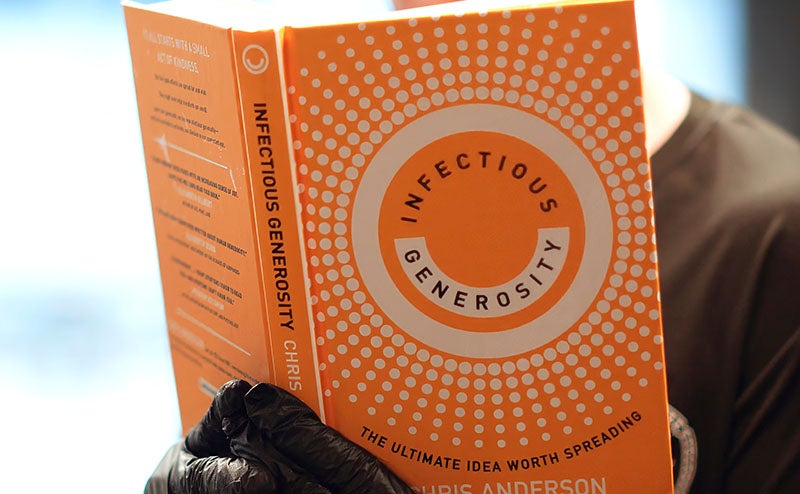This year has been brutal on so many levels. But 1983 could have been far worse.
In the first half of that year, President Ronald Reagan dramatically ratcheted up rhetoric, military spending, and psychological operations against the Soviets. And then in November, NATO conducted a massive military simulation involving 40,000 troops. The Soviets, convinced that NATO was getting ready for a surprise nuclear attack, prepared for nuclear war.
But then, without explanation, the West pulled back from the brink. And now we know why: A double agent embedded high in the KGB’s outpost in London got word to his British handlers that the Soviets had mistaken NATO’s war games as war preparation. Without disclosing the source of the intelligence, British Prime Minister Margaret Thatcher was able to convince Reagan to soften his tone and halt further escalation.
I learned about this episode from British journalist Ben Macintyre’s newest book, The Spy and the Traitor. The book focuses on Oleg Gordievsky, the double agent who helped prevent nuclear war, and Aldrich Ames, the American turncoat who likely betrayed him. Macintyre’s dramatic retelling of their stories comes not only from Western sources (including Gordievsky himself, who is now 82 and living under witness protection in the UK) but also from the Russian perspective. The book is every bit as exciting as my favorite spy novels.
You may be wondering why Macintyre applies the label “spy” to the double agent Gordievsky while applying “traitor” to the double agent Ames. Is it just a Western bias? Actually, no. Macintyre makes it clear the two men could not have been more different.
Gordievsky was raised from birth to be a top KGB spy. His father, Anton, was a devoted Communist Party member and KGB agent who took part in Stalin’s paranoid purges of “enemies of the state.” As a result of his father’s position in the KGB, Gordievsky grew up “well fed, privileged, and secure” in a Moscow apartment block “reserved for the intelligence elite,” according to Macintyre.
Gordievsky was bright, athletic, and adept at learning foreign languages, all of which helped him get into the prestigious Moscow State Institute of International Relations, sometimes called “the Russian Harvard.” Even before graduation, he was recruited into the KGB and began his rise up the hierarchy.
But something snapped inside Gordievsky when the Soviet Union invaded Czechoslovakia, in 1968. “This brutal attack on innocent people made me hate [my own country],” he later wrote. “My soul was aching.” He began to question all the Soviet dogma that he had been learning since birth.
Five years later, an undercover officer in MI6—Britain’s equivalent of the CIA—named Richard Bromhead met Gordievsky at an art exhibit in Copenhagen. Bromhead knew that Gordievsky was a KGB agent but knew nothing of his growing antipathy toward the Soviet Union. But somehow he sensed a recruitment opportunity. Using sophisticated spycraft I enjoyed learning about, Bromhead spent the next year probing Gordievsky’s loyalties. Finally, over drinks in an elegant hotel, Bromhead made his ask, and Gordievsky crossed over.
Gordievsky became MI6’s most valuable agent within the KGB, providing a torrent of useful intelligence at incredible risk to himself—not to mention his wife and two daughters, who knew nothing of his life as an informant. He knew that the KGB had eyes and ears everywhere—and that if he were even suspected of collaborating with the West, he would be tortured and then executed.
Aldrich Ames, in contrast, was an insecure man who betrayed his country purely for money. While working for the CIA, he was a hard drinker, grumbled frequently about feeling unappreciated, racked up big debts, got divorced, and then immediately got remarried to a woman with a love of Jaguars and Nieman Marcus. The CIA somehow missed these red flags for almost a decade.
In 1985, two years after Gordievsky helped pull the world back from the precipice of war, Ames met his KGB handlers at a restaurant in Washington, D.C., and handed them seven pounds of documents. In what became known as “the big dump,” Ames unmasked at least 25 spies, and many believe that Gordievsky was among them. “Ames knew he was issuing a death warrant for every person he named, but that, he reasoned, was the only way to ensure that he would be safe, and rich,” Macintyre writes.
One of my favorite parts of the book is the section in which Gordievsky narrowly escapes capture by fleeing across the Finnish border. By the time we get to that part, we already know that he survives. But it’s thrilling anyway. Macintyre, who has a keen eye for detail, does a great job narrating the escape scene and all the ways it almost fails. I won’t give away any of those details here.
Another memorable part of the book is Macintyre’s deep dive into the paranoia and corruption of the Cold War KGB. It felt relevant and interesting not just as a historical study but also for understanding the professional culture in which Vladimir Putin was raised. For example, Putin’s 2016 election interference comes straight out of the “active measures” playbook the KGB deployed against Margaret Thatcher in 1983.
Given the pure cost (in dollars and lives) of running intelligence operations, it can be tempting to wonder whether the benefits are worth it. But the Gordievsky case shows that the payoff can be enormous—maybe even world saving. I’m glad I read this remarkable profile in courage.





